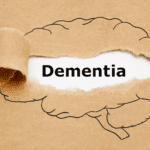Emotional well-being and mental health are hugely important in the quality of life of all people, and this applies to elderly care.
As society progresses, the focus on mental health is becoming increasingly more prominent. The importance of the mental well-being of people is starting to be recognised as incredibly important. The impacts and causes of mental health conditions continue to be studied but we know that a person’s environment and experiences can massively shape their mental health. The elderly face unique problems when ageing that most other people alive right now cannot understand. In this article, we will cover how mental and emotional well-being has an impact on elderly care now and moving forward.
Understanding the Challenges of Emotional Well-being
Despite the fact that most people haven’t directly experienced the challenges of becoming elderly, many have felt similar effects on their mental health. Because of this, people can approach elderly care with a sense of empathy and understanding, but this understanding may not be enough. It is important to consider the individual’s experiences and environments when it comes to their emotional well-being.
A lot of elderly people suffer from symptoms of depression and anxiety. A large reason for this may be the feeling of isolation and loneliness. As a person ages, their surroundings start to differ, and they may lose friends that have been with them their whole lives. On top of this, many elderly people may not have had children, which makes it likely that they have no living family. This can create a sense of isolation and loneliness which can lead to depression.
One unique challenge related to mental health in elderly care is dementia. Dementia is a very difficult concept to understand. This is because most people haven’t personally experienced it, and those who have will struggle to express their experience. Dementia impacts the cognitive functions of a person, giving them symptoms of memory loss and confusion. To further understand this, we can try discussing the victim’s emotions and experiences, allowing us to be more empathetic and understanding of their scenario.
Promoting Support
When it comes to elderly care, support is crucial to the quality of life of the client. Promoting the idea of supporting mental well-being is a great way to help elderly adults feel respected and listened to, while also spreading awareness. A lot of elderly people struggle with loneliness and isolation; just showing support could be helpful to the mental well-being of someone who needs it.
Personalised care is one of the best ways a carer can actively show their support. By listening to the client’s preferences and needs, the carer can have a better idea of how to provide the best care and improve the quality of life of the individual. These preferences may be from simple food preferences to the client’s preferred activities. All carers should remember that their clients are individual people with personalities and should aim to learn as much as they can about the person.
On top of personalised care, showing support can also come in the form of good communication. This means listening to what the client is saying and displaying an interest, as well as being clear in what you want to communicate. A positive relationship between client and carer is crucial, and all carers should try to build a positive rapport with their clients. Good elderly care will always involve good communication; listening well and validating the client’s emotions.
Educating Others
Elderly care can often be a difficult topic, with people not fully understanding the trials and tribulations that the elderly have to go through. Because of this, education is incredibly important when it comes to the emotional well-being of the elderly. All staff that work with the client, such as carers and nurses, should be properly educated on good elderly care. Not only should they be educated on general care, but also should be educated about their specific client’s needs and personality. It is important to fully understand the client as much as possible.
On top of this, it is also a good idea for the general public to be educated on proper elderly care and what the elderly have to go through. The reason for this is to create an overall more understanding and accepting society when it comes to the elderly. There are still many elderly people who experience things such as ageism and disability discrimination. By educating the general public, we can try to eradicate this discrimination as much as possible, allowing for a more positive society for the elderly to be a part of.
Another way to improve education about mental well-being in elderly care is to continue to promote research on mental health in the elderly. By promoting this research, we can uncover more about how different aspects of life impact the mental health of the elderly and how elderly care can be improved. Researchers communicating with caregivers will be beneficial to the practical side of elderly care and can be a huge boost to the emotional well-being of the elderly.
Conclusion
In conclusion, emotional well-being is very important to elderly care due to the many different challenges that the elderly have to face. These challenges can be mostly unique to the elderly, such as dementia, however, they also may face challenges that others can relate to. Things like anxiety and depression can be prevalent in the elderly and are usually caused by isolation and loneliness. To support these individuals, they should be given personalised care with proper communication, allowing them to know that they are valued and respected. By educating ourselves and others, we can all improve on helping the elderly deal with their hardships and improve their quality of life.
Complete Homecare 24
We offer a wide range of services at Complete Homecare 24, including 24-hour care. All of our home care complies with palliative care guidelines. Through our in-home care, we want to make sure that our patients feel heard, seen and cared for. Every patient has a unique care plan in place so that the person providing care can comprehend their specific requirements. To keep up to date, check out our Facebook and Instagram.






1 Comment
Carers Week 2023: Highlighting The Importance of Home Carers
13 June 2023[…] article explores the significance of home carers, their challenges, and the impact they have on the lives of their care […]